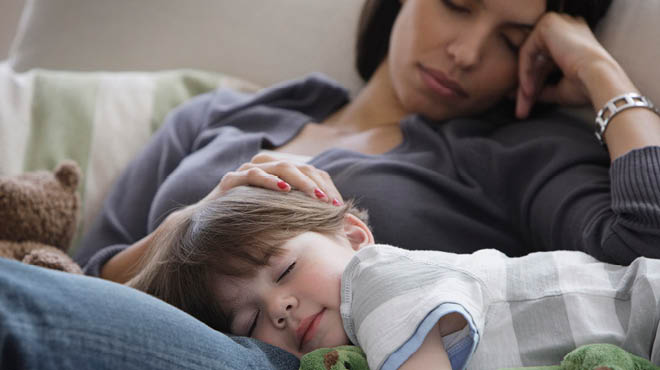Recent Posts
Steps to prevent norovirus

Norovirus tends to spread during the fall and winter months, but it can make people ill any time of the year. Often referred to as the stomach flu, norovirus causes people to experience cramping, stomach pain, nausea, vomiting and diarrhea. Noroviruses are a group of related viruses that can cause gastroenteritis, which is an inflammation of the stomach and intestines.
People with norovirus illness are highly contagious from when they begin feeling sick until a few days after they recover. With no vaccine to prevent norovirus and no medication to treat it, prevention is up to you.
Who is infected with norovirus?
Anyone can be infected with norovirus and become sick. It's also possible to be infected with the virus many times in your life.
Each year, norovirus causes approximately 20 million illnesses, resulting in tens of thousands of hospitalizations and hundreds of deaths. If you're infected with norovirus, you can feel ill and throw up or have diarrhea many times a day. This can lead to dehydration, especially in young children, older adults and people with other illnesses. Norovirus is the leading cause of foodborne illness outbreaks in Minnesota.
Most people will recover within a few days, but people with weakened immune systems may experience more prolonged symptoms. Norovirus can spread quickly in shared spaces like day care centers, school classrooms, nursing homes and cruise ships.
Tips for prevention
Consider these tips to prevent norovirus infection:
- Stay home if you're sick.
This means staying home from school and work. Food service workers are legally required to stay home if they are sick. - Practice proper hand hygiene.
Wash your hands carefully with soap and water, especially after using the restroom, changing diapers and before preparing food or eating. Wash your hands more often when someone in your household is sick. - Don't rely on alcohol-based hand sanitizer.
Hand sanitizer shouldn't be used as a substitute for hand-washing. You can use hand sanitizer in addition to washing your hands, but hand-washing is the best method to prevent norovirus. - Be smart in the kitchen.
Don't prepare food while you are sick with norovirus or are experiencing norovirus symptoms for at least three days after you recover. Carefully rinse fruits and vegetables, and thoroughly cook oysters and other shellfish before serving. - Clean and disinfect contaminated surfaces.
Use a household bleach solution, up to 1 ½ cups of bleach in one gallon of water, to clean surfaces after vomiting or diarrhea accidents. Leave the solution on a bleach-safe hard surface for at least five minutes, and then wash the area with soap and hot water. Wear rubber gloves while cleaning, and dispose of paper towels in a plastic bag. - Avoid potluck meals.
Stay away from potluck meals or homemade items to reduce exposure to potentially contaminated food during norovirus outbreaks.
Following these tips can decrease your risk of becoming infected with norovirus. Prevention of norovirus infection is your best option to stay healthy.
Timothy Slama, D.O., is a Family Medicine physician in Fairmont, Minnesota.






